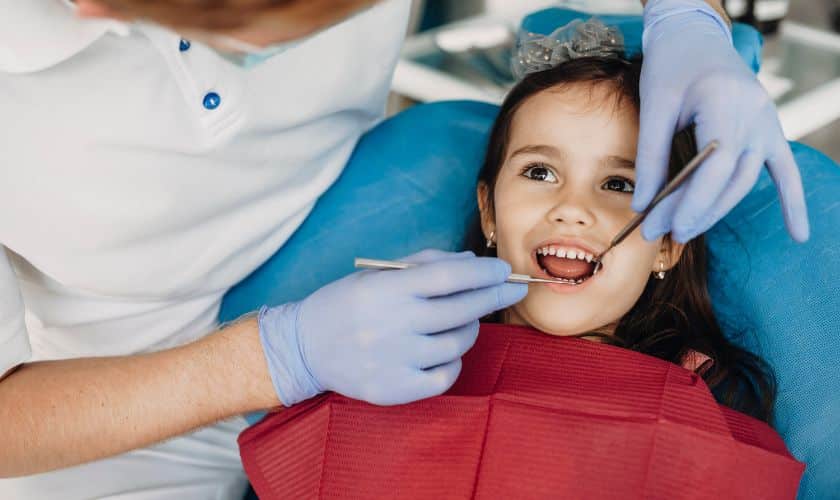Pediatric orthodontics plays a pivotal role in ensuring not only straight smiles but also fostering lifelong oral health. From early interventions to long-term maintenance, these treatments set the stage for bright futures and healthy smiles. Let’s delve into the importance of pediatric orthodontics in nurturing optimal oral health throughout life.
The Significance of Early Intervention:
Pediatric orthodontic care often begins at a young age, addressing issues such as malocclusion, overcrowding, and misalignment. Early intervention not only corrects dental problems but also prevents potential complications later in life. By guiding dental development during formative years, orthodontists lay the groundwork for healthier smiles in adulthood.
Promoting Proper Oral Development:
Pediatric orthodontic treatments, such as braces or aligners, help guide the growth of permanent teeth into their correct positions. This not only enhances aesthetics but also ensures proper alignment for optimal function. By addressing issues like crowded or crooked teeth early on, orthodontists prevent potential speech impediments, chewing difficulties, and jaw pain, promoting overall oral health.
Preventing Future Complications:
Untreated orthodontic issues in childhood can lead to more severe problems later in life, including tooth decay, gum disease, and temporomandibular joint (TMJ) disorders. By addressing these issues proactively, pediatric orthodontics reduces the risk of future complications, saving patients from discomfort, pain, and costly treatments down the road.
Boosting Self-Esteem and Confidence:
Pediatric orthodontic treatments not only correct dental issues but also boost self-esteem and confidence in children. A straight, healthy smile can significantly impact a child’s self-image and social interactions, fostering positive emotional well-being. By addressing aesthetic concerns early, orthodontists empower children to smile with confidence, laying the foundation for improved mental health.
Educating Patients and Parents:
Pediatric orthodontists play a crucial role in educating both patients and parents about proper oral hygiene practices and the importance of orthodontic treatment. They provide guidance on maintaining good oral health habits, such as regular brushing, flossing, and routine dental visits. By instilling these habits early, orthodontists empower families to prioritize oral health throughout their lives.
Transitioning to Adult Orthodontics:
As children grow into adolescents and young adults, their orthodontic needs may evolve. Pediatric orthodontists monitor dental development closely and may recommend transitioning to adult orthodontic treatments, such as braces or Invisalign, to address any lingering issues. This seamless transition ensures continuity of care and ongoing support for optimal oral health.
Long-Term Maintenance and Retention:
Even after orthodontic treatment, maintaining the results is essential for lifelong oral health. Pediatric orthodontists provide patients with retainers and follow-up appointments to monitor dental stability and prevent relapse. By emphasizing the importance of retention, orthodontists ensure that patients enjoy the benefits of their treatment for years to come.
Conclusion:
Pediatric orthodontics is not just about straightening teeth; it’s about laying the groundwork for lifelong oral health and well-being. By addressing dental issues early, promoting proper oral development, and empowering patients with knowledge and confidence, orthodontists set the stage for bright futures and healthy smiles. Investing in pediatric orthodontic care paves the way for a lifetime of optimal oral health and self-assurance.

